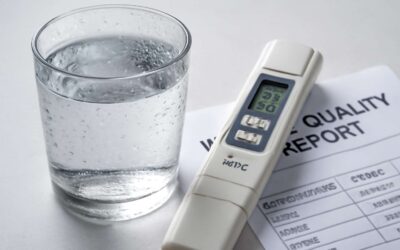Understanding Why Puppies Might Not Eat but Drink Water
Common Causes of Loss of Appetite in Puppies
When a puppy is not eating but drinking water, it signals a subtle yet significant shift in their health that warrants attention. Unlike adults, puppies often experience rapid changes in appetite, which can be attributed to a variety of underlying causes. This pattern may seem benign at first glance, but it can sometimes mask more serious health issues that require prompt intervention.
Common causes of loss of appetite in puppies include dental discomfort, stress from environmental changes, or mild gastrointestinal disturbances. Sometimes, a puppy might simply be overwhelmed by new surroundings or unfamiliar routines. However, persistent refusal to eat despite regular water intake should never be ignored, as it could point to infection, parasitic infestations, or even congenital issues.
Understanding why puppies might not eat but drink water involves recognizing the delicate balance between hydration and nutrition. If this behavior persists, seeking veterinary insight becomes essential, as early diagnosis can prevent complications and ensure your puppy’s healthy development. Remember, water intake alone does not suffice for a growing pup; nutrition is critical for their vitality and growth trajectory.
Signs to Watch For
When a tiny heart beats with the promise of new beginnings, observing a puppy not eating but drinking water can feel like a silent cry for help—an echo that something deeper stirs beneath the surface. This behavior, subtle yet telling, often masks a spectrum of concerns that demand our keen attention. It’s as if the puppy’s vitality whispers through the water’s flow, hinting at underlying distress that cannot be ignored.
Signs to watch for include lethargy, persistent vomiting, diarrhea, or visible discomfort during chewing or eating. These clues serve as vital signposts, guiding us through the labyrinth of puppy health. Sometimes, the reasons are as benign as teething pain, but other times, they unveil more serious issues such as infections or parasitic invasions. Recognizing these indicators early can make all the difference in safeguarding their delicate growth trajectory.
- Unusual lethargy that saps their playful spirit.
- Persistent dehydration despite regular water intake.
- Signs of pain, such as whimpering or reluctance to move.
In the quiet moments when a puppy refuses to eat but continues to drink water, the gentle rhythm of their health is whispering its story. Attention to these signs can illuminate the path toward healing, ensuring that the puppy’s journey remains one of vibrant discovery rather than silent suffering.
Health Concerns Behind a Puppy Not Eating
Infections and Diseases
When a puppy is not eating but drinking water, it’s like watching a tiny, furry drama unfold—one that can be surprisingly alarming. Behind this seemingly simple behavior often lurk serious health concerns, particularly infections and diseases that demand quick attention. Puppies, with their delicate immune systems, are especially vulnerable to conditions such as parvovirus, distemper, or even bacterial infections that can stealthily sap their appetite while letting them gulp down water like there’s no tomorrow.
Infections can cause fever, lethargy, and gastrointestinal upset, all of which might make a puppy lose its desire to eat but still feel compelled to hydrate. It’s a paradox that signals the body is battling something more sinister. To add a layer of complexity, some diseases directly target the digestive tract, impairing the puppy’s ability to process food properly, yet water remains a tempting escape route for comfort or relief.
Monitoring symptoms and understanding that a puppy not eating but drinking water could be a red flag is vital. Remember, the vulnerability of young pups to infections and diseases means that what seems like a small issue could escalate into a life-threatening situation without prompt veterinary intervention.
Dental Problems
Dental problems in puppies can quietly undermine their health, manifesting as a puppy not eating but drinking water. While it may seem minor at first, persistent dental issues can cause significant discomfort, leading to reduced appetite. When a puppy struggles with sore gums, broken teeth, or infections in the mouth, eating becomes a painful task. Yet, water might still be consumed eagerly, as it offers relief or comfort without the same discomfort as solid food.
These dental concerns aren’t just about bad breath or visible plaque—they can interfere with a puppy’s ability to chew properly, resulting in a reluctance to eat. Over time, untreated dental problems can escalate, causing systemic infections that affect overall health. Recognising the subtle signs early on can be crucial. If a puppy is not eating but drinking water, it’s often a red flag that warrants a veterinary check-up to rule out dental or other underlying health issues.
Other Medical Conditions
While dental and infectious issues often grab the spotlight in puppy health discussions, other medical conditions can quietly manifest as a puppy not eating but drinking water. Such symptoms can be subtle but deeply telling—signaling that something more systemic might be at play. For instance, metabolic disorders, such as hypoglycemia or thyroid imbalances, can cause a loss of appetite despite a puppy’s ongoing thirst. These conditions interfere with the body’s delicate chemical equilibrium, leaving the puppy feeling unwell but still seeking comfort in water.
Moreover, gastrointestinal disturbances—like inflammatory bowel disease or parasitic infestations—may suppress a puppy’s desire for food, yet not diminish their need for water. Here, an understanding of underlying health issues is essential. Often, a puppy not eating but drinking water is an early warning sign of more severe problems, such as liver or kidney dysfunctions, which require prompt veterinary intervention. Recognising these signs early can make all the difference in safeguarding your puppy’s well-being, especially in the nuanced landscape of South African veterinary care.
How to Care for a Puppy Not Eating but Drinking Water
Monitoring and Observations
When a puppy is not eating but drinking water, it can set off alarm bells faster than a fire alarm in a quiet library. Monitoring your furry friend’s behavior becomes essential, especially since water intake alone doesn’t always paint the full picture of health. Keep a close eye on how much water your pup is drinking—are they guzzling like a camel or barely sipping? Sudden changes in drinking habits might hint at underlying issues worth investigating.
Observations are key here. Notice if your puppy shows signs of lethargy, whining, or seems uncomfortable despite drinking water. A puppy not eating but drinking water could be responding to minor stress or something more sinister like gastrointestinal distress. To get a clearer picture, consider noting the frequency of water intake and any other unusual behaviors. This simple record can help your vet diagnose whether your puppy’s water consumption is normal or worrisome, especially when combined with other subtle clues.
Immediate Actions
When faced with a puppy not eating but drinking water, immediate attention can turn concern into clarity. First, observe your pup’s behavior closely—sometimes, a simple change in environment or routine can cause temporary loss of appetite. Offering a gentle, warm meal or broth can entice them to eat without overwhelming their delicate stomachs.
If your puppy continues to refuse food but maintains water intake, consider adjusting their surroundings—perhaps a quieter spot away from hustle and bustle. It’s also wise to keep a record of their water consumption, noting whether they are drinking excessively or just enough.
In some instances, dehydration can sneak up silently, making hydration vital. To address this, provide fresh water frequently and monitor their response. If the puppy not eating but drinking water persists beyond 24 hours, consulting a veterinarian becomes essential. Remember, timely intervention can prevent minor issues from escalating into more serious health concerns.
When to Seek Veterinary Help
In the shadowed corners of puppy care, one haunting question persists: what if your little companion is not eating but drinking water? This quiet imbalance can be a harbinger of deeper afflictions, or merely a passing phase cloaked in mystery. When a puppy not eating but drinking water becomes a nightly refrain, it demands a careful, almost reverent attention. The delicate act of monitoring their hydration becomes a dance between instinct and patience, for dehydration lurks like a silent specter, ready to strike unseen.
If this condition persists beyond a day, it is crucial to seek veterinary help. A professional can unveil the unseen causes—be it internal distress or insidious illness—before they spiral into something more sinister. Sometimes, a puppy’s refusal to eat, despite gulping water, can mask underlying issues that only a trained eye can diagnose. Remember, early intervention can be the difference between fleeting discomfort and a more ominous fate.
- If your puppy is not eating but drinking water, keep a close eye on their behavior. Is lethargy creeping in or are they restless? These subtle cues can help determine the urgency of seeking veterinary help.
- Ensure their environment remains calm and free from undue stress. A tranquil setting may encourage their appetite to return, but persistent refusal warrants professional consultation.
In the end, the mystery of a puppy not eating but drinking water is often a call to vigil. When the normal cycle of hunger and hydration falters, the shadows deepen, and professional guidance becomes not just advisable but essential. Trust your instincts—because sometimes, the silence of a puppy’s hunger speaks volumes.
Preventative Measures and Tips for Maintaining a Healthy Appetite
Proper Nutrition
When a puppy is not eating but drinking water, it signals a subtle yet profound internal dissonance. Ensuring proper nutrition starts with understanding that maintaining a healthy appetite is not just about feeding but about nurturing trust in their own body’s signals. Preventative measures become vital in this delicate balance—creating a calm, consistent environment that fosters natural curiosity and hunger.
One effective way to support a puppy’s healthy appetite is through proper nutrition tailored to their developmental stage. Offering a variety of high-quality, nutrient-dense foods can stimulate their senses and encourage eating. It’s equally important to monitor their feeding routine, ensuring portions are appropriate and free from sudden changes that might cause distress or confusion.
Additionally, incorporating a routine that encourages physical activity can stimulate their appetite organically. Puppies thrive on engagement and movement, which naturally boosts hunger. Remember, a keen eye on their water intake alongside their eating habits can reveal underlying issues before they escalate, emphasizing the importance of vigilant observation during this vulnerable phase.
Regular Veterinary Check-Ups
Preventative measures are the cornerstone of maintaining a puppy’s healthy appetite, especially when faced with the puzzling situation of a puppy not eating but drinking water. Regular veterinary check-ups are essential in this regard, acting as an early warning system for underlying health issues that might otherwise go unnoticed. These routine visits allow the vet to monitor growth, assess overall health, and catch any subtle shifts in behaviour that could signal discomfort or illness.
During these visits, veterinarians often recommend a tailored approach to nutrition and care, emphasizing the importance of a well-balanced diet suited to the puppy’s developmental stage. It’s also wise to keep track of any changes in eating or drinking patterns, as these can be subtle yet telling indicators of emerging problems. To support healthy eating habits, consider structured feeding routines and a variety of nutrient-rich foods that stimulate interest and curiosity in mealtime.
- Schedule regular veterinary check-ups to ensure early detection of health concerns.
- Maintain a consistent feeding routine to foster trust and stability.
- Observe water intake carefully alongside eating habits for signs of underlying issues.
Managing Stress and Environment
Amidst the quiet turmoil of a puppy not eating but drinking water, there lies a subtle but profound signal about the state of their well-being. Preventative measures become more than just routines; they transform into a moral obligation towards nurturing resilience and understanding in our young companions. Managing stress and environment plays a pivotal role in restoring balance, as puppies are remarkably sensitive to their surroundings.
Ensuring a calm, stable environment can significantly reduce anxiety that often manifests as a reluctance to eat. Consider the following strategies:
- Provide a consistent routine that fosters trust and security.
- Minimize loud noises and sudden changes in the puppy’s environment.
- Offer a quiet, cozy space where they feel safe to explore and relax.
Sometimes, the simplest adjustments—like a predictable daily schedule or a peaceful corner—can make all the difference. When a puppy is not eating but drinking water, these measures help create a sanctuary where their physiological and emotional needs are gently met, paving the way for recovery and renewed appetite. The journey toward understanding their silent signals is a testament to our moral responsibility and deep connection with these vulnerable beings. Their well-being hinges on our ability to read between the lines and nurture their fragile spirits with patience and compassion.
Dealing with Teething Discomfort
When a puppy is not eating but drinking water, it often signals a delicate balance of discomfort and resilience. Teething discomfort, a common challenge in young pups, can make eating a painful or unappealing experience. During this phase, the puppy’s gums may feel tender and swollen, turning mealtime into a reluctant affair. To ease this, offering chilled, soft foods or specially designed teething toys can provide soothing relief and stimulate their natural appetite.
Creating an environment that alleviates discomfort is crucial. Soft, cool treats or broth can encourage them to eat without adding strain to their sensitive gums. Incorporating natural remedies like frozen carrot sticks or gentle dental wipes can also be beneficial. Remember, patience and gentle encouragement help the puppy associate positive sensations with eating, even amidst teething woes. In this tender stage, understanding and subtle adjustments transform their world into a sanctuary where healing and hunger can coexist harmoniously.



0 Comments